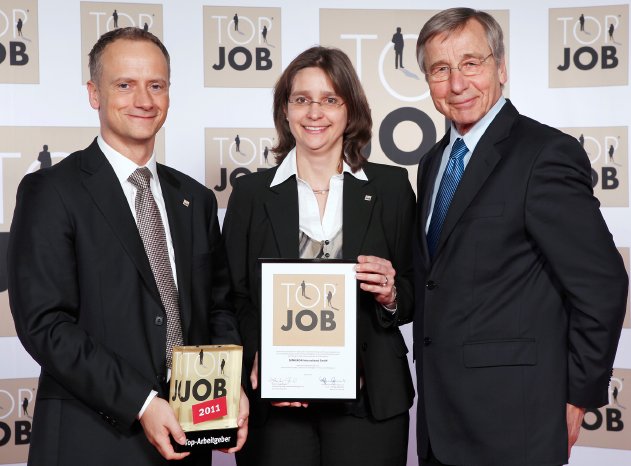“What we need is a pact - a pact between universities, businesses, families and government.” This is what Andreas Dauer, head of corporate development at SEMIKRON, is calling for. Semikron is a global leader in the production of diode/thyristor power semiconductor modules. There is a shortage of qualified staff, a fact that is particularly critical in the development of this complex technology. “There is an ever increasing need for qualified employees. And it is becoming increasingly difficult to meet this demand,” explains Mr. Dauer.
And yet Semikron is very pro-active on the employee promotion front. In fact, the family-run company backs and sponsors an in-house action team that organises events and activities across all hierarchy levels, including family events. The company also operates a daycare centre near the company premises that provides childcare during working hours, and even allows the employees to work from home. What is more, trainees who would like to take up academic studies are offered the flexibility to continue working while they study; they are given a fixed salary and do all of the compulsory internships in-house. For the less studious employees, there is in-house training. For example, an employee can do a Chamber of Commerce accredited course in plant and machinery operation comprising 1,000 taught hours. Employees can continue working as normal and are given official leave to attend classes. But this alone is not enough to solve this problem in the long-term. In fact, society at large and every individual firm should be joining forces to combat the shortage of qualified staff, stresses Mr. Dauer. A permanent sustainable development solution is what the country needs. After all - no talent should be left undiscovered.
Prof. Dr. Heike Bruch and her team from the Institute for Management and HR Management of the Uni-versity of St. Gallen scrutinised the work of 169 HR departments in medium-sized companies from every industry in Germany. The team analysed the chief HR instruments and performed an employee survey, which a minimum of 80% of employees were asked to take part in. The 72 best companies, which includ-ed SEMIKRON International, will now bear the “Top Job” quality seal for one year.
“This award is based on the opinion of our talents, which makes us very proud,” comments Mr. Dauer. “Plus, we now know what our employees think of our work climate. That was important to us, for this is the only way we can become a better employee in the long-term and implement the right measures.”
The 72 top medium-sized employers in Germany have an average of 493 employees. In 2010, each of the “Top Job” firms had an average of 74 new job openings. More than half of the 72 “Top Job” firms in 2011 are family run businesses. The fact that these include 11 global leaders and 21 national market leaders shows that good employers can be economically successful, too. In keeping with this, more than half of the firms pay their employees salaries that exceed than collective tariff levels.
For more information on SEMIKRON International, the other 71 prize-winning companies and the Top Job project, see www.topjob.de.

